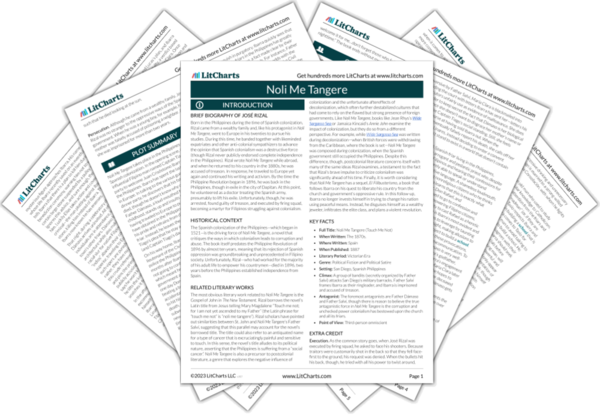A serious and committed Spanish friar who takes over ’s post in San Diego as the town’s priest. Fray Salví is a meticulous and cunning man who uses his religious stature for political influence, benefitting both himself and the church. He is often at odds with the town’s military , volleying back and forth for power over San Diego and its citizens. While preaching, he will often have his sextons (people who tend the church grounds) lock the doors so that listeners, and especially the ensign, must sit through long sermons. Unlike other priests, he refrains from frequently beating noncompliant townspeople, though he applies excruciating might on the rare occasions he does resort to violence. On the whole, though, he asserts his influence by engineering behind-the-scenes plans to defame his enemies. For instance, to ruin —who is engaged to , the woman Father Salví secretly loves—he organizes a violent rebellion against the Civil Guards and frames Ibarra as the ringleader. Just before the bandits descend upon the town, Salví rushes to the ensign’s house and warns him of the imminent attack, thereby portraying himself as a hero concerned with the town’s wellbeing.
